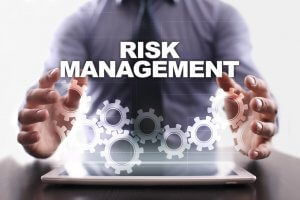The opportunities to learn about the forex market and trading are getting increasingly diverse, expanding across different mediums of communication. Luckily, unlike before, we have written and oral records of professional traders sharing their trading experiences and development. With today’s ease of internet access, more and more eager participants enter the world of forex each day through various vehicles, which makes it possible for different personalities to grasp the complexity of this market in the manner that suits them the most. As we all look for the most effective ways to take in the greatest quantity of knowledge in the least amount of time, today we are diving deep into the most relevant instruments one can use to gather information about trading currencies efficiently.
Since people have become accustomed to using the internet, browsing for information, this is the first means of expanding one’s education we are going to tackle. Those who are more comfortable with reading may find blogs to be particularly useful, where topics are carefully and elaborately presented. As some people may find these records to be downright uninventive or simply too lengthy, social media outlets, such as Twitter, provide ample information on forex. Nevertheless, posts such as these might at times be excessively personal, susceptible to inaccuracy, and potentially too focused on current events, which may confuse beginner traders.
Another heavily relied upon source the majority turns to is YouTube where you may find a plethora of accounts specifically created to provide insight into the tools, strategies, and other relevant aspects of trading one can consider. These videos are sometimes supported by a written record in the form of linked blog posts from the same author, which can be quite useful for the learning process as people can relax and enjoy the video without needing to worry about note-taking. Even though forex channels are one of the most popular means to equip oneself with key facts and hear constructive advice, it is important not to confuse a large following with quality, which can be quite a difficult task in the beginning stages.
Some individuals prefer to experience a proper learning environment rather than search for clues themselves, which is why it may also be useful to consider finding a professional trading company and look for educational courses. These are specifically designed to offer key lessons and answer the most important questions, guiding beginners from the very basics to the application stage. Such courses are usually constructed to methodically explain how the spot forex market functions, typically combining audio, video, and written materials to cover all learning types and provide the most comprehensive learning experience.
Aside from professional companies, some prominent figures in this market also offer 1:1 coaching programs, which some seem to prefer although it is vital to remember that any form of coaching or consulting should not lead to dependency. All individuals or companies can serve as long as traders accept their ownership in the entire process and see guidance as support and not as a crutch, which often proves to have a detrimental effect on overall trading performance and success in the long run. Therefore, if you are prepared to independently absorb and apply new lessons, signing up for a course or a program of this sort may be a perfect option for you.
Many beginning traders also ask questions regarding books that could help them gain knowledge and perfect their trading skills. If you refer to most professional traders, however, you will find that it is not trading books (or e-books) that they praise, but the books that helped them grow as a person. The topics that typically emerge as the most relevant are the ones concerning trading psychology, personal development, and money management. Beginner traders often focus solely on indicators, charts, and basic terminology, yet after a few, consecutive failures they start to realize that a key component is missing. To ensure that your toolbox and skillset are sufficient, understand that your preparedness also involves learning about yourself, your emotions, and the greatest personal triggers. As a result of one’s fear of investment, for example, the whole account may suffer and such people may not be able to increase their capital as they initially imagined.
Psychology books can allow beginner traders to get to know themselves and overcome hurdles that can have lasting consequences on their life. Besides, books on money management can help you rearrange your finances and change your perception of money and earning, which can only reflect positively on your life. Success in trading does not stem from understanding the market alone, but learning how you as a person interact with it to reach prosperity, freedom, and independence, which should be reasons strong enough to start exploring available books to help you grow. Nowadays, we also have numerous trading personality tests online that can prepare you or direct you well so that you know which area requires the most of your attention.
Now that we have listed all sources of information on forex that traders seem to find as useful, we need to openly discuss where and when real learning takes place. Traders can invest an incredible amount of time to process theory and they can do this in various creative ways (e.g. note-taking, creating reminders on the phone, etc.), but no knowledge can provide any benefit unless tested. The proven way for you to secure future success and monetary gains is to backtest and forward test your system via a demo account for at least six months. This process will also require you to keep a journal for each stage of trading so that you can use the data to make changes and improve your algorithm and your strategies.
You cannot run before you can walk, they say, and the same applies to trading. Real trading will test you, your abilities, and your emotions most rigidly and excruciatingly if you fail to recognize the importance of the testing period. A demo account should not, by any means, be perceived as a painful prolongation of the learning stage but as an invaluable opportunity to get an education like nowhere else. And, who knows, if your results turn out to be consistently positive, you may even present your achievements to a prop company or a banking institution and start earning money immediately.
While we all hope to obtain knowledge and skills on trading currencies the same way we take a pill, one source simply cannot give you everything you truly need, unfortunately. Learning about forex takes time and effort, so you cannot expect to sleep through the process. Forex education, no matter how you go about it (i.e. via reading, listening, taking courses, or else), demands from every trader to be present and involved in the process. This also entails that you will need to double-check the information you come by, exploit your mental capacities, and keep your emotional reactions under control.
Do not go looking for a walking stick in the form of a coach, but rather consider using this assistance as an opportunity to learn and expand your knowledge before you can carry on independently. Although some affluent individuals pay for advisory services to increase their return percentage, they also know everything there is about the market and they take the steps on their own. Therefore, the best way to learn about trading currencies is to apply the knowledge you absorbed, but you cannot expect to go far if you are aloof or plain lazy. Every forex expert will confirm that practical application led them to their greatest expansion, so now that you know where to start, you can start to develop a clearer vision of your path.






One reply on “What’s the Best Way to Learn about Forex Trading?”
Great information. Lucky me I discovered your blog by chance (stumbleupon).
I’ve book marked it for later!